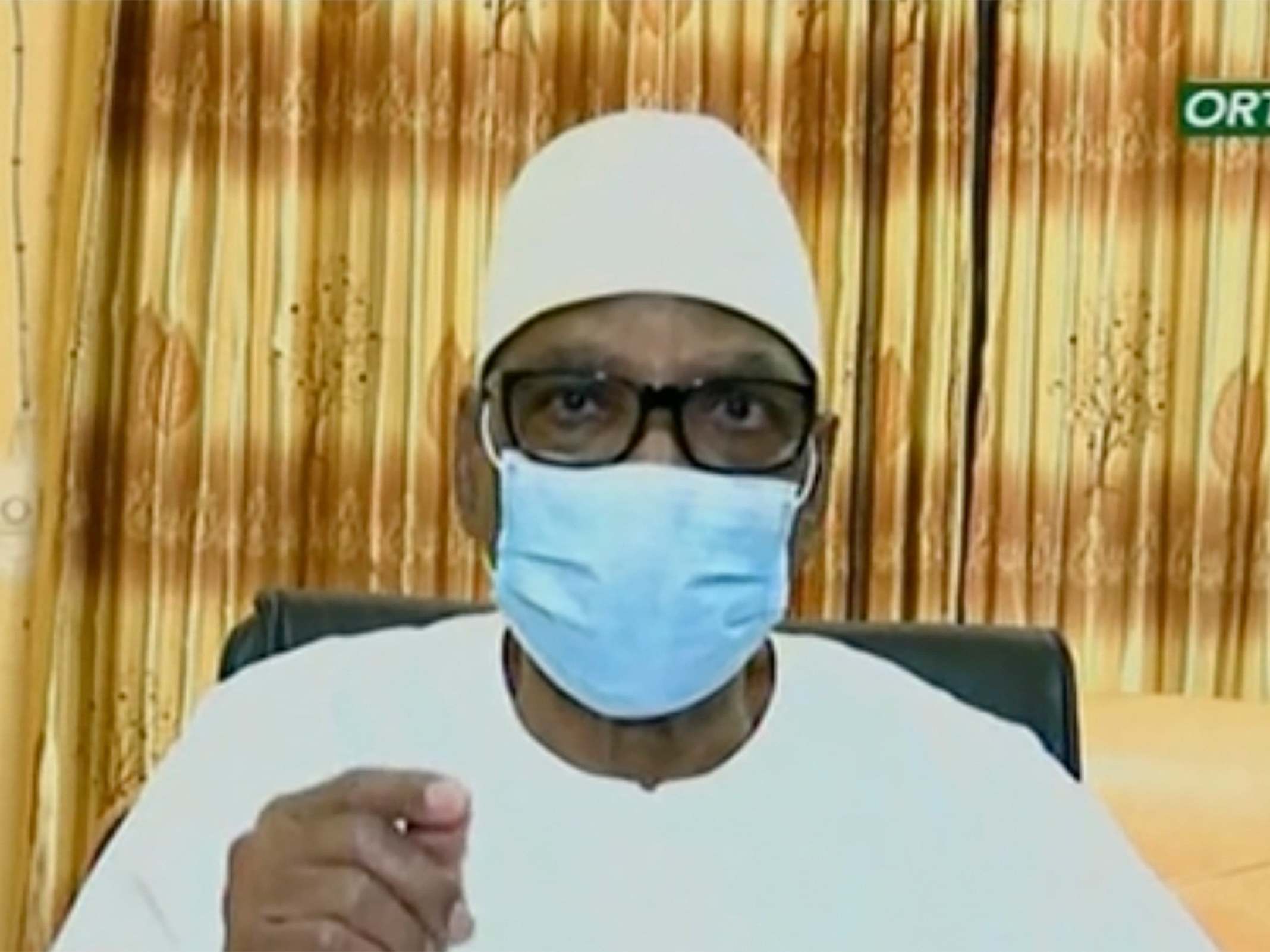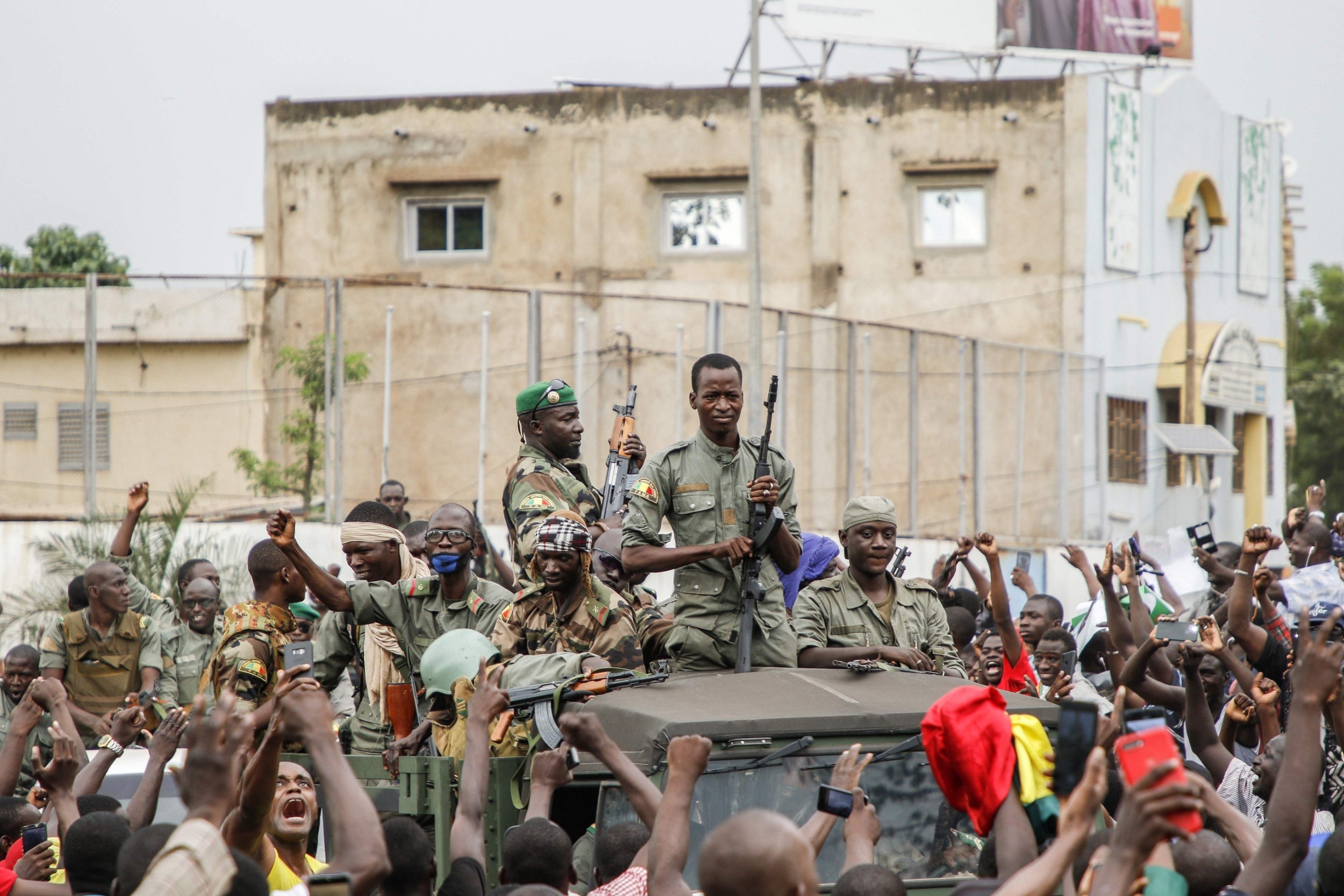Mali coup: President Ibrahim Boubacar Keita resigns and dissolves parliament after armed mutiny
International community fears potentially destabilising effect on entire region

Your support helps us to tell the story
From reproductive rights to climate change to Big Tech, The Independent is on the ground when the story is developing. Whether it's investigating the financials of Elon Musk's pro-Trump PAC or producing our latest documentary, 'The A Word', which shines a light on the American women fighting for reproductive rights, we know how important it is to parse out the facts from the messaging.
At such a critical moment in US history, we need reporters on the ground. Your donation allows us to keep sending journalists to speak to both sides of the story.
The Independent is trusted by Americans across the entire political spectrum. And unlike many other quality news outlets, we choose not to lock Americans out of our reporting and analysis with paywalls. We believe quality journalism should be available to everyone, paid for by those who can afford it.
Your support makes all the difference.Mali’s president has resigned and dissolved parliament after mutinying soldiers detained him at gunpoint on Tuesday.
In a televised address, Ibrahim Boubacar Keita said his resignation, three years before his final term was due to end, was effective immediately.
“I wish no blood to be shed to keep me in power,” he said.
“I have decided to step down from office.”
The mutinous soldiers behind the military coup, who identified themselves as the National Committee for the Salvation of the People, promised on Wednesday morning to organise new elections after their takeover.
“With you, standing as one, we can restore this country to its former greatness,” said committee spokesperson Colonel-Major Ismael Wague.
He also announced that borders were closed and the introduction of a curfew from 9pm to 5am.
The dramatic seizure of power follows months of protests demanding the ousting of Mr Keita, and plunges the west African country, which is already facing an eight-year jihadi insurgency and the coronavirus pandemic, further into crisis.

While anti-government demonstrators celebrated Mr Keita’s departure, the international community, including former colonial ruler France and other allies, raised concerns of a potentially destabilising effect on the entire Sahel region.
The United Nations Security Council scheduled a closed meeting for Wednesday afternoon to discuss the unfolding situation in Mali, where the UN has maintained a 15,600-strong peacekeeping mission since 2013.
Antonio Guterres, the UN secretary-general, sought “the immediate restoration of constitutional order and rule of law”, a spokesperson said.
Mr Keita, who was democratically elected by a landslide in 2013 and re-elected five years later, was detained along with the prime minister, Boubou Cisse, at a military camp near the capital Bamako on Tuesday.
Support for the president had plummeted over the government’s handling of the jihadi insurgency, and calls for his resignation grew louder after he was accused of corruption and mismanaging the economy.
Regional mediators from the Economic Community of West African States had failed in recent weeks to break the impasse between Mr Keita’s government and opposition leaders.
Join our commenting forum
Join thought-provoking conversations, follow other Independent readers and see their replies
Comments